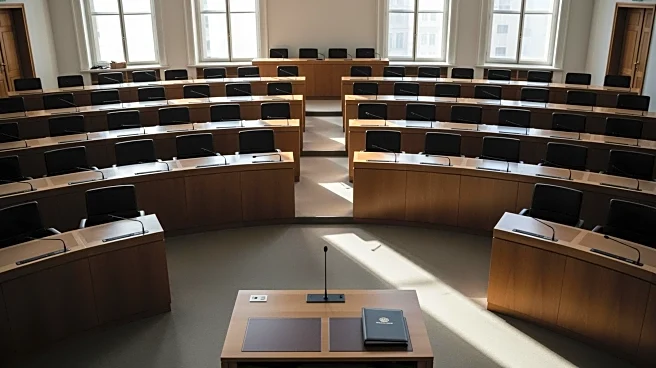What's Happening?
The BBC is under intense scrutiny from the UK Parliament following a controversy surrounding a documentary about U.S. President Donald Trump. The documentary, titled 'Trump: A Second Chance?', included
a misleading edit that combined separate quotes from Trump's January 6, 2021 speech, creating the impression of a direct call for violent action. This has led to accusations of biased reporting and a credibility crisis within the BBC. The broadcaster's chairman, Samir Shah, acknowledged the slow response to the issue but denied claims of compromised impartiality. The controversy has resulted in the resignation of the BBC's director general and head of news, and President Trump has threatened legal action against the corporation. The BBC has apologized to the White House for the edit but maintains it did not defame Trump.
Why It's Important?
This controversy highlights the challenges faced by media organizations in maintaining editorial integrity and public trust. The BBC, as a publicly funded broadcaster, is particularly vulnerable to scrutiny over its impartiality and governance. The incident has sparked debates about media bias and the influence of political affiliations on editorial decisions. The resignation of key leaders within the BBC further complicates its efforts to restore credibility. The legal threat from President Trump underscores the potential financial and reputational risks for media outlets when handling politically sensitive content. This situation may influence future editorial policies and the relationship between media organizations and political figures.
What's Next?
The BBC is focused on stabilizing its leadership by appointing a new director general. The ongoing parliamentary scrutiny may lead to reforms in the broadcaster's governance and editorial processes. The outcome of President Trump's legal threat remains uncertain, but it could set a precedent for how media organizations handle similar disputes. The BBC's response to this crisis will be closely watched by other media outlets, potentially influencing industry standards for handling controversial content. Stakeholders, including political leaders and media regulators, may push for greater transparency and accountability in media practices.










